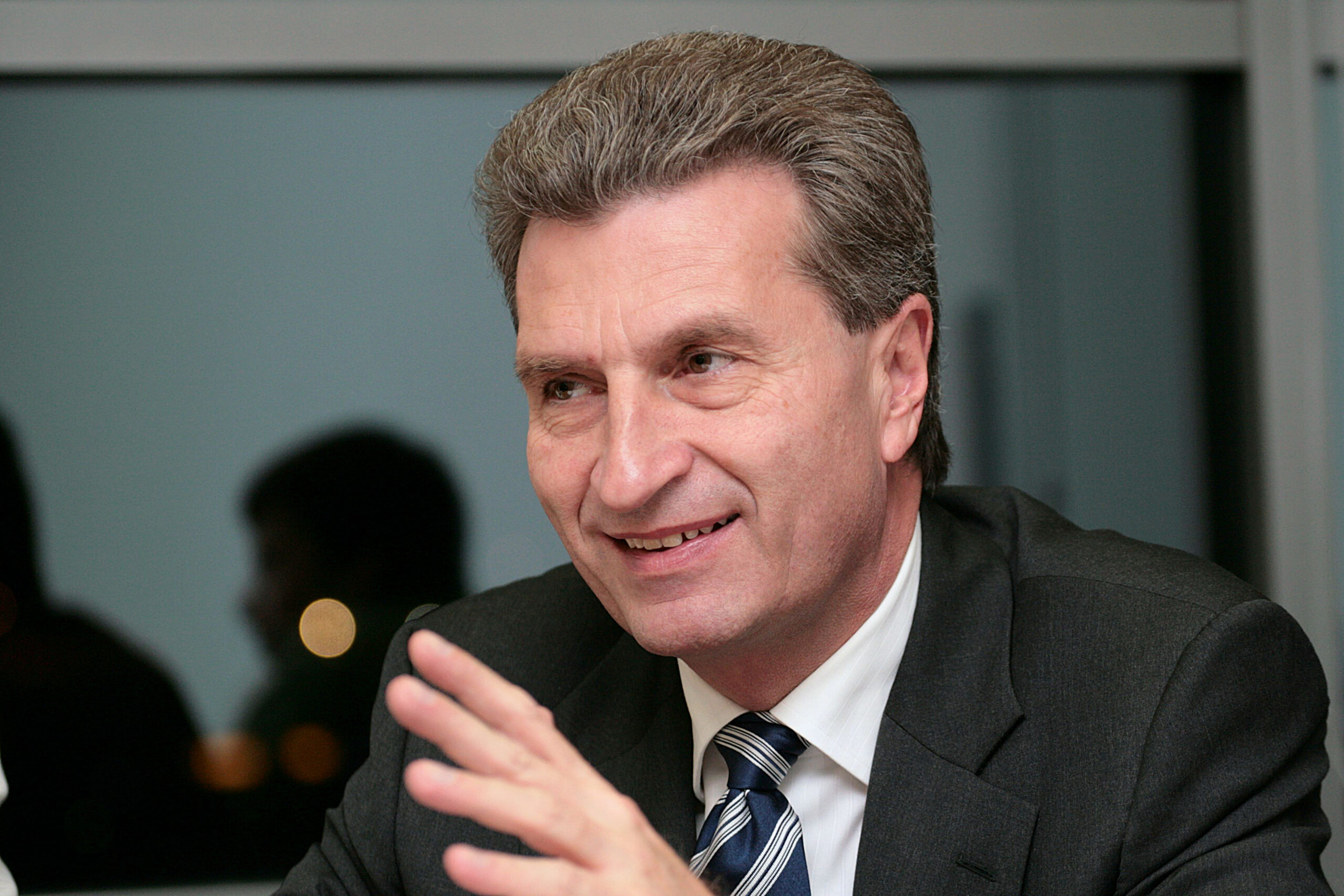In the run-up of the upcoming proposal for the future Multi-annual Financial Framework (MFF) beyond 2020, Commissioner Oettinger in charge of the Budget and Human Resources shared with us his insight on the matter:
“In less than two months (2 May) we will propose the long-term EU Budget financial perspectives beyond2020, post Brexit. What seems to be primarily a financial decision is also a political one: It is about our political priorities in the decades to come.
From the very first discussion of 27 Heads of States and Governments on the subject and the many discussions I had on my visits to the EU capitals talking to Prime Ministers, Finance Ministers and Parliament, there seems to emerge broad consensus on the need to focus more on areas like security, defence, innovation, migration and youth. The consensus reflects the new realities: the foreign policy of US President Trump, the migration crisis of 2015, and other regions of the world investing massively in high tech – all these developments show that we better act together. In the past few years, we shifted limited amounts from other programmes to react to the migration crisis and security concerns. But this was and is not enough. We have to have the means to spend in a flexible way where needs come up.
Then there is youth. Over the past 30 years, Erasmus+ has helped nine million young people to study, train, teach or volunteer in another country, boosting their chances on the labour market. Doubling the participant number of the current programme would require an overall budget of EUR 30 billion over a seven year period. Providing the opportunity for 1 in 3 young people would require a budget in the order of EUR 90 billion. Europe needs also innovation. Research and innovation make the difference in enhancing productivity and boosting competitiveness. The future EU budget must therefore allow the EU to invest in the drivers of innovation enabling European industry to grow and thrive. The Union is currently spending close to EUR 80 billion for its Horizon 2020 Research and Innovation Framework Programme over 2014-2020.
Europe also needs to help create the conditions for companies to scale up. Developing small and medium-sized enterprises beyond the start-up phase remains a challenge. The question has to be answered of how best to boost competitiveness through research and innovation.
Doubling the current Research and Innovation Framework Programme would create an estimated additional 650,000 jobs by 2040.
An increase in the Framework Programme by 50% to EUR 120 billion would create an estimated additional 420,000 jobs by 2040 and increase Gross Domestic Product by around 0.33% over the same period. This would continue the growing trend of recent EU Research and Innovation budgets and ensure an acceptable share of high-quality proposals funded. It would increase the Union’s world-wide attractiveness for leading researchers and tackle weaknesses in innovation and scale-up opportunities. It would support progress on priorities such as digital, energy, climate and health.
Investing substantially in these new priorities and closing the Brexit gap will require a careful blend of new resources and redeployment. Redeployment will necessarily translate into pragmatic savings in the cohesion and agriculture areas, which make up for almost 70 percent of the total EU Budget. We can make reasonable cuts there – maybe 5 to 10 Percent. But to fill the Brexit gap and to cover new policies, we also need fresh money. In total, we need a little bit more than 1.1% of GNI. I would say, we need 1.1x percent. At the moment, the EU Budget is limited to 1, 0 % of the combined GNI in all Member States. This is not that much. From 100 euro on s salary slip, an average of 50 euros goes to tax authority. Out of the 50 euros that are taken away from taxpayers in Europe, only 1 euro goes to the European Union budget. The rest stays in Member States, at national, regional and local level. If somebody is advocating for a “slimmer Europe”, – then they should remember that the EU budget represents just 1 euro out of 50. There is not much you can do on a slimmer basis.
Finally, we discuss the timing. When should the EU Commissions’ proposal be adopted by EU Parliament and the EU Council? I am in favour of swift adoption before the EU Parliaments election in May 2019. We submit on 2 May and then the Bulgarian, Austrian and the Romanian presidency are called up to follow it up swiftly and put it on the agenda of the European Council in time. If they start to discuss in February 2019 and it becomes a priority, we hope, we can close the negotiations at Sibiu in May 2019. This would send a strong message to the world: Europe is capable of acting and even reaching unanimity, which is required in the field of the EU Financial perspective.”

Leave a Reply